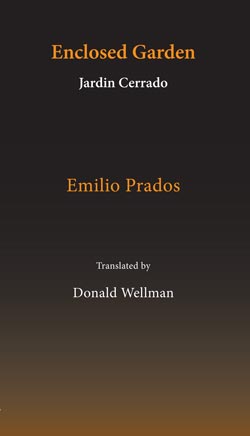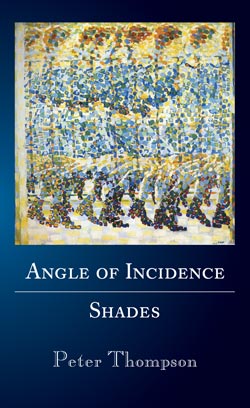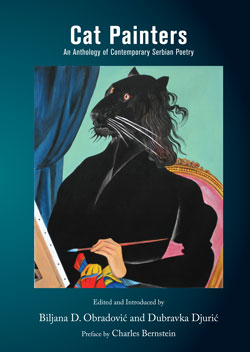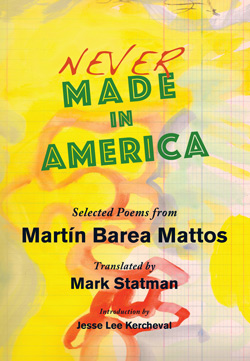Description
Enclosed Garden
(Jardin cerrado)
Emilio Prados
Translated by Donald Wellman
ISBN 978-1935084310
378 pages: $26.95
March, 2013
Diálogos is proud to announce the first English publication of this important long poem by Emilio Prados, who studied in Madrid’s Residencia de estudiantes, under poet Juan Ramón Jiménez, with García Lorca, Dalí and many others who have become known as the Generation of 27. With this volume Emilio Prados takes his rightful place among his peers.
Jardín cerrado / Enclosed Garden is a compilation in four books of the poetry that Emilio Prados wrote during the first years of his exile in Mexico, following the tragic conclusion of the Spanish Civil War. First published in 1946, the contents are lyric poems that originate in contemplative experience. The poems, approximately two hundred in all, are carefully arranged to form a set of series within series that moves like a wave through interrelated topoi: loss or exile, sleeping and dreaming, resurrection or a new sense of the self. The title reflects the garden theme of contemplative and romantic poetry, and the work is rich with allusion, beginning with “The Song of Solomon” and including such medieval works as The Romance of the Rose. Enclosed Garden also contains many references to Arabic poetry and mystical poetry like that of Juan de la Cruz. The collection is both compendium of lyric modes and spiritual autobiography. The theme of the “lost garden” echoes with Genesis as well as the poet’s exile from his beloved Andalusia. The images and energies of Enclosed Garden are deeply erotic as well as deeply spiritual, the meditations of a tormented man with little outlet for his emotions other than that found in writing with insistent and often explosive urgency.
“At long last, the profoundly important poetry of Emilio Prados’ Jardín cerrado appears in English, thanks to the intelligent and sensitive efforts of Donald Wellman.”
Carlos Blanco Aguinaga, co-editor of Prados’ Poesías completas.
“In bringing Emilio Prados to our attention Don Wellman presents us with a major linking figure to the great adventure in poetry associated with Federico García Lorca and others in mid-twentieth century Spain. What emerges is a poet powerful in his own terms and shown here in a telling transcreation into English.”
Jerome Rothenberg, poet, author of Technicians of the Sacred and Poland/1931.
“Donald Wellman’s elegant translation of Emilio Prados’s Jardín cerrado gives English-speaking readers the opportunity to read the poetry of one of the lesser-known contemporaries of Lorca and Aleixandre. A translation of a complete work by this delicate poet is long overdue.”
Jonathan Mayhew, author of Apocryphal Lorca: Translation, Parody, Kitsch.
“This sure-footed translation makes the jewel of the Jardín Cerrado a little less hidden, so that Emilio Prados may begin to take his rightful place alongside his contemporaries: Alberti, Dalí, Buñuel, and Lorca.”
Peter Thompson, editor, Ezra: An Online Journal of Translation and author of Angle of Incidence / Shades
“Donald Wellman’s translation of Emilio Prados’ Jardín cerrado gives us a work in English that those of us who have loved Prados in Spanish will recognize and admire.”
Mark Statman, co-translator of Lorca’s Poet in New York (2007) and author of Tourist at a Miracle.

Born in Málaga in 1899, Emilio Prados studied in Madrid’s Residencia de estudiantes, initially in the experimental school for adolescents, where his tutor was the poet Juan Ramón Jiménez. At the Residencia his friends included García Lorca, Dalí and many others who have collectively become known as the Generation of 27. He also studied in Freiburg although he did not take a degree. In 1921, his delicate health required him to spend a year at the sanatorium in Davos, Switzerland. In 1924 he returned to Spain and with the assistance of Manuel Altolaguirre founded Litoral, a journal that published all of the most notable poets and artists of the Generation of 27: Aleixandre (also a childhood friend), Lorca, Cernuda, Guillén, and Hinajosa among others. In 1925, with the collaboration of Altolaguirre, Impresa Sur was founded. Interestingly the press work was done by the sons of local fishermen. Prados assisted in their education and supervised their apprenticeships.
In the climate of violence that broke out in Málaga after the start of the Spanish Civil War, he settled in Madrid and joined the Alianza de Intelectuales Antifascistas. He helped to organize the Second Congress of International Writers in Valencia, an event attended by Langston Hughes, Octavio Paz, Pablo Neruda and Ernest Hemingway, among others. His books of poetry in this period included Destino Fiel for which her won the National Prize in Literature (1938). With the victory of the Nationalists, Prados entered exile, travelling through Paris and New York before taking up residence in Mexico City until his passing in 1962. This period of exile is considered his most productive with respect to his poetry. Jardín cerrado, Río natural, and Circuncisción del sueño were composed in these years.
Poet, editor, and translator Donald Wellman, lives in Weare NH. His books of poetry include The Cranberry Island Series (Dos Madres 2012), A North Atlantic Wall (Dos Madres, 2010), Prolog Pages (Ahadada, 2009), and Fields (Light and Dust, 1995). Originally a medievalist, he has written on the poetry of Ezra Pound, William Carlos Williams, Charles Olson and poets associated with both Black Mountain College and with emergent contemporary practices. For several years, he edited OARS, a series of anthologies, devoted to topics bearing on postmodern poetics, including volumes entitled Coherence, Perception and Translations: Experiments in Reading. His translation of Antonio Gamoneda’s Gravestones is available from the University of New Orleans Press. His translation of Gamoneda’s Description of the Lie is forthcoming from Talisman House Press. A bilingual selection of his poetry, Remando de noche / Night Rowing, is in preparation for the Biblioteca Javier Coy in Valencia, Spain.






Reviews
There are no reviews yet.